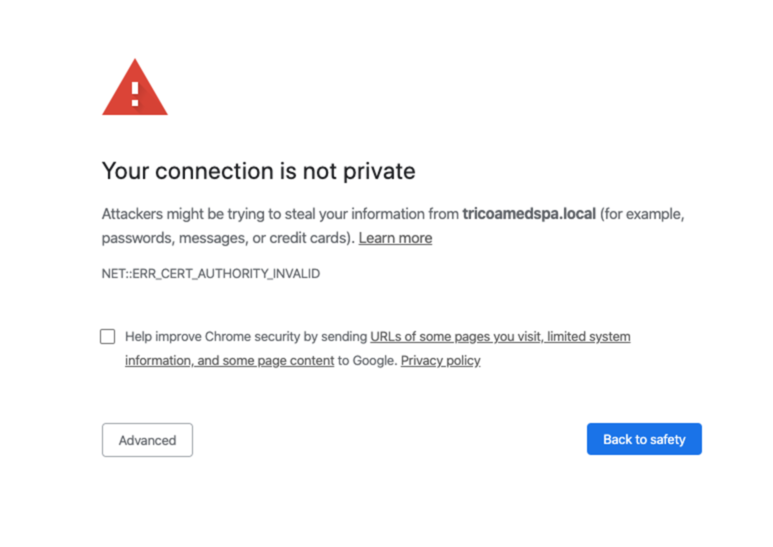You might be thinking that website security really only matters if your website is transferring sensitive information like credit cards. Several years ago secure hosting only really mattered if you were collecting information like credit cards, email addresses, passwords, things like that. Starting in 2018 Google started really putting a priority on website security and since then it’s become a much larger issue than just sending information, it’s really become a web standard to be secure.

What is website security?
Website security requires what we call SSL. SSL, which stands for Security Sockets Layer, is an encryption technology that basically breaks sensitive data apart on the server into small, unidentifiable chunks, and then uses a key on the other side to decrypt the data. That’s a fancy why of saying it’s a lot like a lock and key situation on the server. Data that is sent and received does so under lock and key which prevents people who might be “watching the line” or “data sniffing” from being able to understand what is being sent. No key | No Data.
Why does this matter to my business?
1) It can really positively impact your conversion rates. If someone arrives at your website to fill out your contact form and they get a big warning in Chrome or Firefox that the site is NOT secure, it’s a deterrent for your potential clients. Nowadays people are so worried about identity theft that it can stop them from being willing to share their email or phone number if your website warns them that they shouldn’t. So, having SSL provides that nice badge of safety saying “we’re one of the good guys”.
2) It can positively impact your SEO results. While Google has not come right out and said that they prioritize secure websites, we know that they do. Every speed test and every website test they provide will bark about you not being secure. That would allow us to infer that they absolutely care about security and you can bet if it’s between a non-secure site and a secure one with similar search points, the SSL friendly will win every time! It’s really inexpensive to have SSL, and every bit of SEO value helps!
3) You care about your users and want to provide them with a safe browsing environment where people cannot steal their information. Nobody wants to do business with a company they can’t trust, so having SSL is a barrier removed and a small piece of trust established out of the gate. It’s the little things that matter and keeping their data safe is super important!
How much security do I need?
Most reputable web hosting companies will offer you what is called Simple SSL or Free SSL. They use companies like Let’s Encrypt to provide freebie SSL. That means that your site is secured properly. If you’re transferring passwords or running a store you’ll likely need to purchase a certificate instead of using the freebie. Most SSL certificates come with a liability insurance built-in if you pay for them. If by some crazy chance, your users data is stolen and they sue you, the SSL company stands behind you with that warranty. It’s like having insurance on your website.
Note: the free is fine for most sites, but there are cases where you need a paid one, they run typically between $80 – $200 per year and differ greatly in their coverage and security encryption. If you aren’t sure, ask someone that knows!
The states of website security on your site.
Which state are you in?
There are really 4 states of security on your website that matter.
State 1
No SSL running – but you’re not pretending your secure. This would be a site where there is no SSL installed and when people go to your site they use http://your-site.com. These sites will always have the “Not Secure” warning from the browser. Your users can browse but the browser is constantly warning them that it might not be the best idea.
State 2
You have SSL running – but have it misconfigured or the SSL is invalid. Your users are going to https://your-domain.com but it’s not really secure. This one is a BIG problem. Users will land on a page provided by the browser warning them that you’re pretending to be secure. Even if this is an accident on your end, your users will likely leave. This one is really bad.
State 3
You have SSL running and your certificate is good, but you have content that’s being asked for on your pages that is NOT secure. So in this situation your users are going to https://your-domain.com but it tells them you are not secure. The site still loads so it’s not as bad as state 2, but likely, users might shy away from submitting forms on your website. This one requires a programmer to fix typically.
State 4
You have SSL running and you are fully secure. Your users access your site at https://your-domain.com – and they see a nice lock badge up there with Google Chrome and most all other browsers. In some it’s even a green color, meaning, safe and secure. This is what you really want for your site. Keep it locked down, safe, secure, and professional!


How do I get secure?
Check with your hosting company or website developer to see if your site is SSL-friendly. If it is it should be easy to add a certificate. There are a few technical things that need to be done to ensure it’s working properly, for that, you’ll definitely want a professional to help you out! No point in having it if it doesn’t work properly.
If you happen to be hosting with Muletown Digital, you’re already SSL secured. Every site we work on and host on one of our maintenance plans is running SSL. It’s just good for all parties to do it!
Final Thoughts.
SSL is secure website hosting that protects your business, your clients information, helps you with SEO and conversion, and it’s a very inexpensive enhancement you can make on your website.
If you need help with this please contact us so we can provide recommendations based on your hosting setup!



